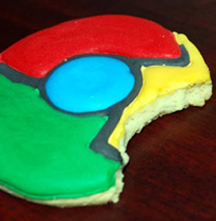You probably have noticed that your favorite online newspaper or magazine has put up subscription pay walls that force you to buy a subscription or make a donation to them before you can read their content. The Save Journalism Project warns that this new pay-as-you-read arrangement will create two systems of journalism: higher-quality journalism worth paying for and restricted to those who can afford it, and free content that incentivizes sensationalism and outrage - - instead on fostering accuracy.
The problem is expected to become much worse as Google phases out third-party cookies. Many websites use cookies to collect data about you including your viewing and buying habits. The websites use the data to create third-party data packages. Many online publishers, large and small, use third-party data to target you with targeted ads - some which will pop up on your screes(s) later in the day.
Advertisers pay the media companies to run those ads. It’s the money from the advertisers that keep the news outlets afloat.
Generated third-party data via the use of cookies is being phased out of the ad ecosystem because it's not considered privacy-friendly. While Google says its changes will increase user’s privacy, the advocacy group Save Journalism says Google’s privacy rationale makes no sense.
Rather than using a de-identifying third-party data, the New York Times, for instance, according to the advocacy group, will rely on first-party data from its logged-in users. First-party data is tied directly to personally identifiable information like user names and email addresses.
While media giants have the funds to set up first-party data systems, it’s a move that small companies cannot afford. This will give large companies an advertising advantage that will enhance their profitability. Smaller companies will be left unarmed.
Google’s Elimination of Third-Party Cookies: Your Privacy and News Choices
Money


Noting that the coronavirus pandemic has reportedly forced the closure of more than 25 local newsrooms, the journalism advocacy group says “big tech’s” dominance over the digital advertising market and their unrivaled capacity to monetize its platforms are having drastic effects on journalism as a whole. Nick Charles, spokesperson for the Save Journalism Project re-affirmed, “In its plan to phase out third-party cookies, it leaves local news outlets unable to monetize their content through advertising. Huge national papers with millions of logged-in users can switch to first-party data. But that option is simply not available to all but a handful of outlets.”
The problem is expected to become much worse as Google phases out third-party cookies. Many websites use cookies to collect data about you including your viewing and buying habits.
Note: Port Of Harlem has not depended upon Google advertising since around 2012 when we were kicked out of their program over a technical dispute. Occasionally, we use direct-response advertisers, who pay us for every qualified response (i.e. call lead or sale) their ad generates. However, we are most depended upon our very loyal advertisers to support us, you to support them, and they in turn support us. And, we owe you and our advertisers a quality, accurate issue every other week. Thanks.
Note: We are conducting a survey now. We will use the information to better serve your needs and to give our current and potential advertisers a better idea of whom we are reaching. Click here to participate and be part of a solution. Thanks!
The problem is expected to become much worse as Google phases out third-party cookies. Many websites use cookies to collect data about you including your viewing and buying habits.
Note: Port Of Harlem has not depended upon Google advertising since around 2012 when we were kicked out of their program over a technical dispute. Occasionally, we use direct-response advertisers, who pay us for every qualified response (i.e. call lead or sale) their ad generates. However, we are most depended upon our very loyal advertisers to support us, you to support them, and they in turn support us. And, we owe you and our advertisers a quality, accurate issue every other week. Thanks.
Note: We are conducting a survey now. We will use the information to better serve your needs and to give our current and potential advertisers a better idea of whom we are reaching. Click here to participate and be part of a solution. Thanks!
Advertisers | Contact Us | Events | Links | Media Kit | Our Company | Payments Pier
Press Room | Print Cover Stories Archives | Electronic Issues and Talk Radio Archives | Writer's Guidelines






